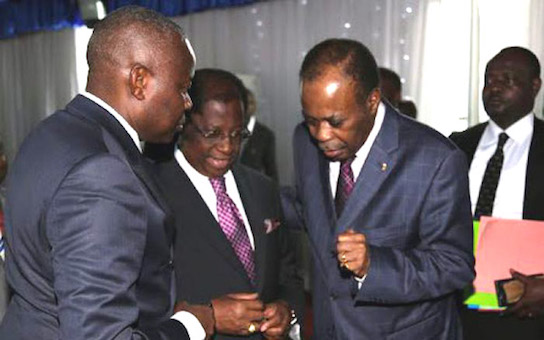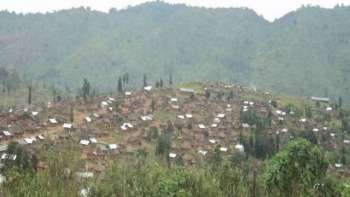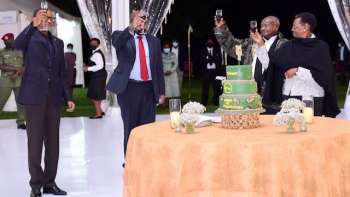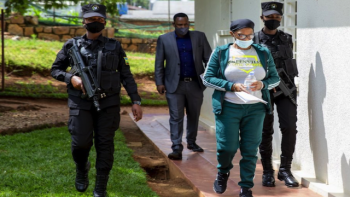Congolese long-time political opposition leader, Vital Kamerhe will become the next prime minister, sources close to the Presidency of the Democratic Republic of the Congo told AfroAmerica on Thursday October 13, 2016. According to the sources, the decision was reached thanks to the mediation from Angolan President DeSantos and Southern African Development Community (SADC). On Wednesday evening, Vital Kamerhe and DRC President Joseph Kabila met at the Presidential palace, to agree on the final details of their deal. The deal was reached after more than a month of a political dialogue and riots by those opposed to the dialogue.
The riots led to several deaths from both the civilians and the police forces and large scale destructions of properties. The organisation of the political dialogue, facilitated by the African Union envoy, Edem Kodjo, was considered improbable at some point when the main opposition leaders refused to attend. Only did it become possible when one of the main leaders of the opposition, Vital Kamerhe, changed his mind. He leads the National Congolese Union (UNC). Other prominent opposition leaders decided to stay away. They suspected current President Joseph Kabila of seeking to remain in power beyond his current term, using the political dialogue to sanction his decision. President Kabila ends his second and final legal term on December 19, 2016.
When Vital Kamerhe joined the political dialogue, was chosen as the co-chair of the political dialogue, and called on other opposition leaders to join the dialogue, observers and common people in Kinshasa considered Vital Kamerhe as the next Prime Minister, come October 2016 (see our article: Political Dialogue Opens in DRC: Vital Kamerhe, the Next Prime Minister? ).
During the meeting between President Kabila and Vital Kamerhe, they agreed on the structure of a transitional government that will lead the country until the end of 2017. The government will prepare the next elections, in which Vital Kamerhe will most likely become a candidate. The provisions on the new government will be included in the final accord to be signed this week. After the meeting, Vital Kamerhe met Etienne Thsisekedi, the other prominent opposition leader to enlist his support.
















